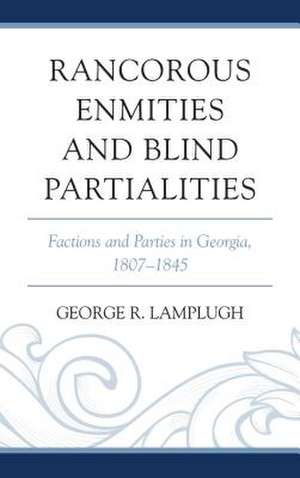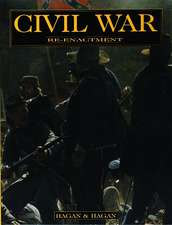Rancorous Enmities and Blind Partialities
Autor George R. Lamplughen Limba Engleză Hardback – 29 iun 2015
Preț: 682.30 lei
Preț vechi: 934.66 lei
-27% Nou
Puncte Express: 1023
Preț estimativ în valută:
130.56€ • 142.26$ • 110.01£
130.56€ • 142.26$ • 110.01£
Carte tipărită la comandă
Livrare economică 23 aprilie-07 mai
Preluare comenzi: 021 569.72.76
Specificații
ISBN-13: 9780761865865
ISBN-10: 0761865861
Pagini: 448
Dimensiuni: 160 x 226 x 38 mm
Greutate: 0.86 kg
Editura: Rowman & Littlefield
ISBN-10: 0761865861
Pagini: 448
Dimensiuni: 160 x 226 x 38 mm
Greutate: 0.86 kg
Editura: Rowman & Littlefield
Notă biografică
George R. Lamplugh graduated from the University of Delaware, with a degree in History, in 1966. After two years in the U.S. Army (1966-1968), he earned a PhD. in American History from Emory University in Atlanta, Ga. From the fall of 1973 through the spring of 2010, he served on the faculty of The Westminster Schools, Atlanta, Ga., including almost a decade as Chair of the History Department.
Descriere
This work picks up the story of the evolution of Georgia political parties where Lamplugh left it in his first book, Politics on the Periphery: Factions and Parties in Georgia, 1783-1806 (1986), carrying the story through 1845, by which date parties in Georgia actually mirrored those at the national level.











